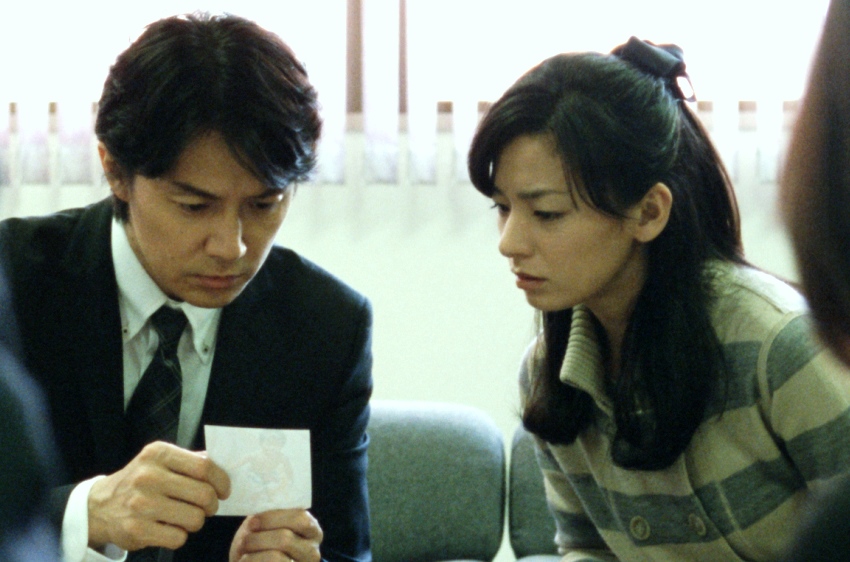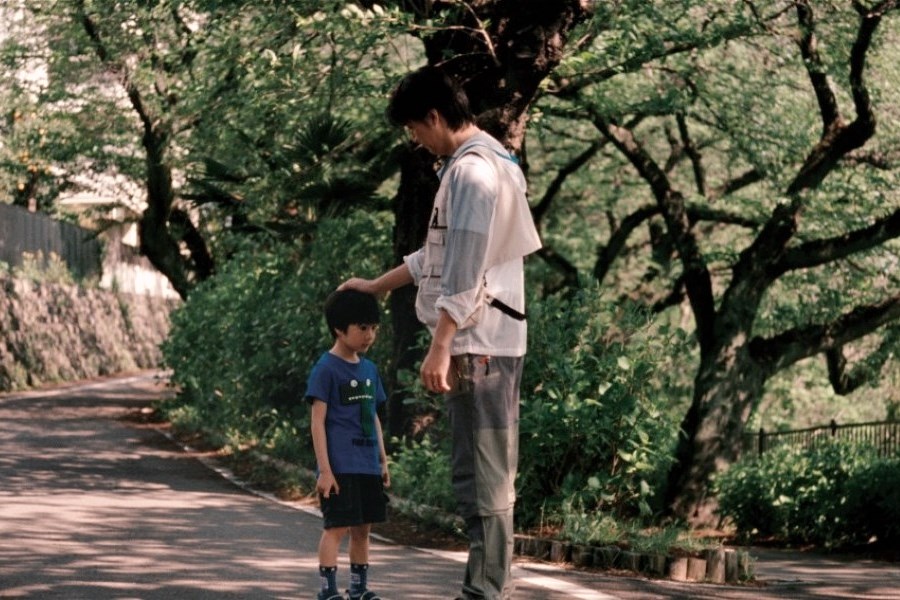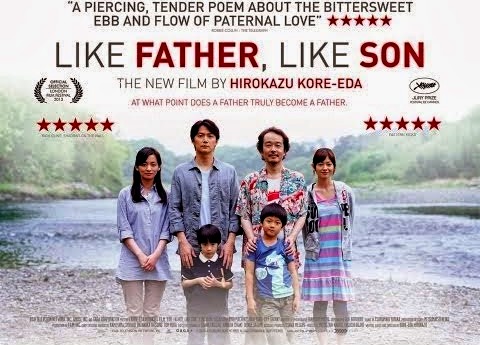
I can’t name a single great switched at birth movie, but at least this is one of the better ones. Like Father, Like Son (Japanese, in English subtitles) is the slow-moving, cautious but observant work of director Kore-eda Hirokazu, but it has a clarity and perceptiveness to it – the concept was compelling enough to certain Hollywood executives who are currently hatching an American remake. Two sets of parents with opposite economic values learn their child was switched at birth, the 6-year olds are too young to grasp the meaning of it. Workaholic father Ryota (Fukuyama Masaharu) wants to switch the children back.
The compelling factor is that Ryota is a flawed, conceited and pompous human being. He has never been a present husband or father to his own, and therefore, never has really loved anybody except on a superficial level (the film’s chilly aesthetic matches his character). It’s not that he doesn’t know how to rough-and-tumble play with a child, it’s just that he’s rarely there for it. He believes in the old school idea of keeping a child with the same bloodline, that his real son will grow up to be like him.
Much warmer is the other family, especially the father who plays with the kids like a kid himself. Yudai (Lily Franky) spends time fixing the childrens’ toys when he’s not doing anything else, it seems. This character seems like an easy person to push around, except when Ryota offers a huge sum of money to raise both children, Yudai is understandably offended as his wife Yukari (Maki Yoko). There are some things you can’t put a price on.
 When the two couples exchange their boys on a trial basis, we understand Ryota’s and wife Midori’s (Ono Machiko) stubborn view of it, but not so much the other family which seems to go along with it because they love all children equally, and they foresee perhaps they will be in lifelong contact with both boys anyway. And perhaps it’s because it’s the Japanese thing to do when it comes to honor and bloodlines.
When the two couples exchange their boys on a trial basis, we understand Ryota’s and wife Midori’s (Ono Machiko) stubborn view of it, but not so much the other family which seems to go along with it because they love all children equally, and they foresee perhaps they will be in lifelong contact with both boys anyway. And perhaps it’s because it’s the Japanese thing to do when it comes to honor and bloodlines.
The third act of the film summons real drama because we’re watching the boys readapt to a new domestic comfort level, and to the idea of new parents. Will the boys’ revolt in this switch? Can they love a new set of parents?
Hirokazu has been hugely acclaimed for quite musky work, but his true great ones are “After Life” (1998) and especially “Nobody Knows” (2005), which is a serious consequences take on “Home Alone” without the slapstick. Hirokazu has a sensitive touch, letting his camera gaze on his subjects, but his film technique is very withdrawn and reserved. Yet it’s those very old generation qualities that make this Japan story interesting – I don’t see this working as an American film.
120 Minutes. Unrated. Japanese in English subtitles.
FOREIGN FILM / THINKING TEENS / WEEKEND FOOD FOR THOUGHT
Film Cousins: “Mix Up” (1986); “Nobody Knows” (2005, Japan); “The Imposter” (2012); “The Other Son” (2012, France).





